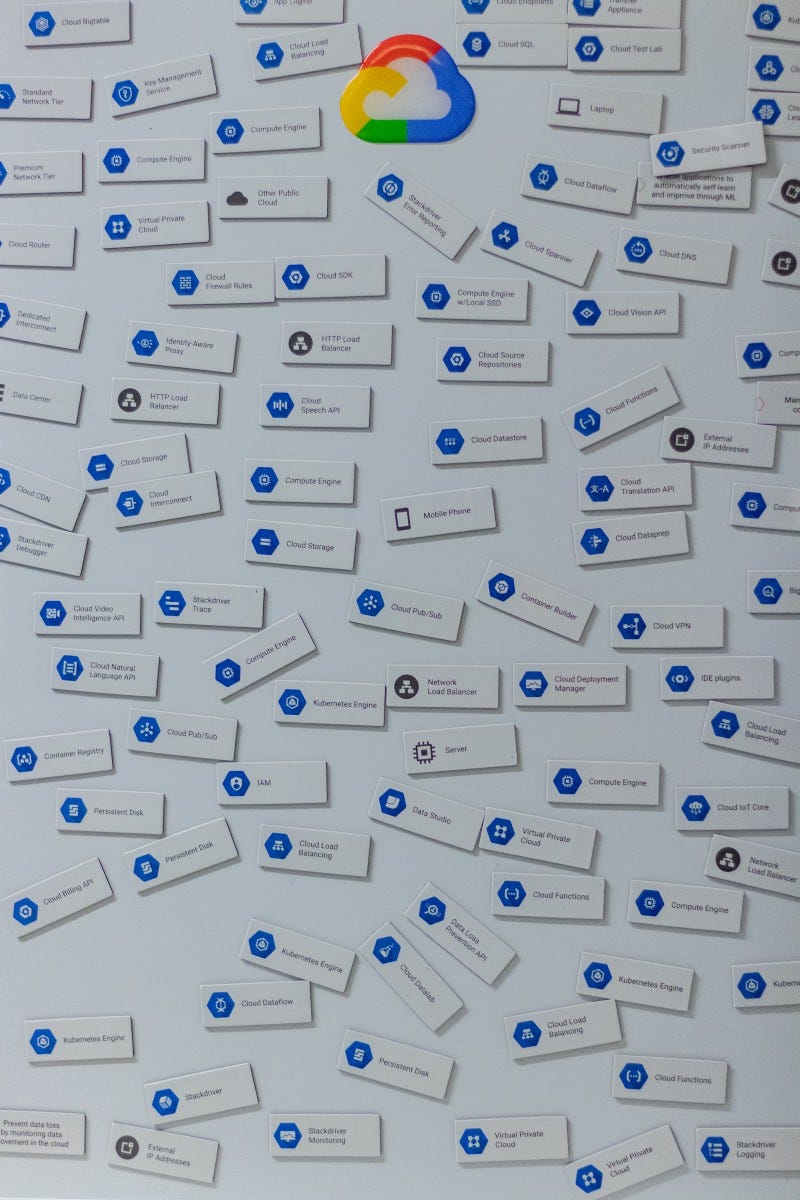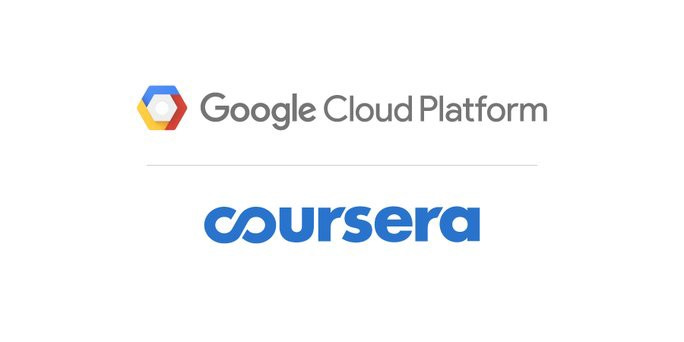Coursera’s Data Engineering with GCP Professional Certificate: better content or better marketing?
An honest review from a recently certified data student
An honest review from a recently certified data student

(Note: All opinions are my own)
Introduction
I recently took and completed the 5 main courses which make up the Data Engineering with Google Cloud Professional Certificate offered by GCP on Coursera (link to certificate here)
I have been wanting to up-skill on Cloud Technologies during the 2020 Covid Pandemic and thus jumped at the opportunity to take this series of courses when I discovered that GCP put out a massive catalog on the famous e-learning platform.
Overall Experience
Taking the Certificate has been definitely an overall positive experience, gave me a solid conceptual understanding of a good portion of the GCP data stack and allowed me to get my hands dirty with personal projects about which I wrote a related piece (How to automate financial data collection with Python using APIs and Google Cloud).
Despite this, I feel like the real aim of the entire curriculum and structure of the courses was more around marketing the GCP suite to prospective corporate clients rather than fostering in-depth student understanding of the tool and its potential applications.
I think this is perfectly fine for an organization to do, and in fact there are many software companies out there leveraging their training programs to push adoption and corporate partnerships. I have indeed been taking courses from the likes of AWS, Tableau and Alteryx, to name some very well known providers in the analytics space, which are all companies naturally trying to increase their tools’ market share and use training programs and certification efforts as an additional way towards that goal.
With the GCP Coursera catalog however, I felt slightly taken aback at the fact that I often perceived this overarching marketing effort sneaking in from the back door and taking away depth, content and learning focus from an otherwise amazing curriculum.
This opinion was further substantiated when a colleague who was taking the Machine Learning with TensorFlow on Google Cloud Platform Specialization (also part of GCP’s Coursera catalog) expressed similar complaints regarding the courses he was covering.
An important aspect to highlight is that most of a student’s perception of the quality and level of enjoyment deriving from an online course depends on mainly two factors:
The student’s level of technical competence in the subject prior to taking the course
The student’s intrinsic motivation for taking the course
With this in mind, there is also the possibility that I did not fit the mold of the student best positioned to take advantage of the learning resources and get the maximum level of knowledge and enjoyment out of the course. In this sense, I was not the accomplished AWS Data Engineer trying to add GCP to the list of cloud providers I can work with, and thus perhaps I did not gloss over many otherwise introductory-level lessons and labs in which I found the above-mentioned marketing efforts to be a little too intruding.
Wanting you to judge for yourself, I have summarized below what to expect if you decide to take GCP’s Data Engineering Professional Certificate on Coursera, to enable you to take a decision of whether to proceed with the time and investment (39£/month subscription until completion- prices may vary depending on your location)
Structure and Course Topics
The Data Engineering with GCP Professional Certificate is structured across 6 courses of 2 weeks (indicative duration). The course list is the following:
2. Modernizing Data Lakes and Data Warehouses with GCP
3. Building Batch Data Pipelines on GCP
4. Building Resilient Streaming Analytics Systems on GCP
5. Smart Analytics, Machine Learning, and AI on GCP
6. Preparing for the Google Cloud Professional Data Engineer Exam
As prerequisites, the team at Google recommends having “roughly one (1) year of experience with one or more of the following:
A common query language such as SQL
Extract, transform, load activities
Data modeling
Machine learning and/or statistics
Programming in Python”
In hindsight, it is probably fair to say you should be able to follow and complete the entire curriculum even if in possession of a high level view of all of the above points, as you will not be conducting in-depth Machine Learning or Modelling as you go along. It is indeed helpful to have knowledge around these concepts to better comprehend how GCP can enable you to use its stack and services to serve the purpose of your project, and to compare their services to other major cloud providers on the market.
Overall, the Professional Certificate is classified as being at an Intermediate level series on Coursera, which I think is about right here.
The Pros
Brand Name and Career Opportunities
Completing a certification in GCP has obvious career benefits and can open lots of project and employment opportunities. In the consulting industry, GCP -skilled practitioners are more and more often required for client projects, as Google is pushing forward with its investments in the platform in the ever-growing battle for cloud’s market share with AWS and Microsoft Azure.
There are even instances in which a GCP certification is required for you to be able to be staffed on a project (this is if you are working at a big consulting firm active in the space and which may have put such resourcing policy in place). In this case, getting certified in Google Cloud can really separate you from the pack in case you are keen on getting involved.
Showing your credentials demonstrates you have taken an active interest in learning the platform to get your foot in the door as a cloud practitioner who can add value by building data pipelines for all kinds of companies and projects.
2. Hands on Labs
This and other GCP Certificates distributed via Coursera have the great benefit of having an hands-on approach of making you learn the platform’s architecture, user interface and components via the active involvement of the student in Lab Assignments in which one takes part in via the Qwiklabs platform.
All course topics are covered via Labs and these really give you an opportunity to get familiar with the product and start building solutions.
The learning team does a great job in giving you all information and resources to effectively complete the labs and to me this was the most exciting aspect of the Certificate, as it made the experience very interactive and cohesive in terms of putting theory and practice together.
3. Enough knowledge to get started on personal projects via GCP’s Free Tier account
If the labs still do not satisfy you and you want to dive straight into building your own solutions, then you can get started right away by signing up with a GCP Free Tier account (you can use your existing Google Account to sign up) and take advantage of a number of free resources to play with right away.
In this regard, the Data Engineering Professional Certificate is a great way to instill enough knowledge for the student to pursue his/her own projects straight away in the GCP console.
You could even stop mid-course, build something on your own, and then get back to the Coursera resources to progress in your learning and take your personal project forward.
4. Excellent prep for the GCP Professional Data Engineer Exam
If you are serious about re-skilling and getting a Google Cloud Professional certification, than the Coursera’s Certificate stands as an amazing prep resource for successfully passing Google Cloud’s Professional Data Engineer exam. Course 6 of the series is actually entirely dedicated to giving you tips for successfully clearing the exam.
This exam is the official industry standard for being recognized as proficient in the use of the GCP console as a Data Engineer, and can definitely boost your career prospects even more than simply taking the Professional Certificate on Coursera.
The Cons
Lack of Depth
The courses are great at giving you an overview of the main tools required to be effective as a Data Engineer on GCP, but I would have liked to see a bit of a deeper dive and stronger conceptualization of certain data engineering topics.
Instead, some relevant portions of the course skip from GCP tool to GCP tool, without necessarily a detailed view of each and how they all fit together on a potential project.
Therefore, some relevant knowledge integration is definitely needed via other resources, as you will come out of this Professional Certificate having a good sense of what tool X and tool Y do but will likely have to start building on your own to build a better theoretical sense of how the different pieces fit into the GCP console’ puzzle.
2. Inconsistent Curriculum
Being a Data Engineering certificate, I would have expected the materials to focus solely on topics such as data ingestion, processing, automation and flow rather than being occasionally presented with GCP tools that handle Machine Learning or Data Visualization, such as AutoML and Data Studio.
If I wanted to study those, I would have opted for another of the Professional Certificates offered in their catalog. Instead, there is an entire course (course 5) dedicated to less relevant topics, and further video-minutes sprinkled across which are targeted at presenting Google’s AI capabilities within the console.
Overall, I did not really see a fit and most of all a benefit for skimming over materials that have less relevance towards prospective Data Engineers and which take away further depth from the most important concepts.
3. Occasional Shameless self-promotion
If you have been reading till now you will probably now by now that I this is the aspect that to me was the most problematic; stumbling upon lectures titled “Why Customers Value Dataflow” really gives away the fact that some lectures aren’t really targeted at the student, but see the viewer as a prospective customer to which to sell a cloud solution.
This point ties well with the curriculum’s lack of depth, as the emphasis shifts from learning in depth about Data Engineering and more to the presentation of GCP’s umbrella of tools and the use cases it promises to solve for its clients, rather than just focusing on the pure learning experience of the user.
Final Verdict
All in all, I would still recommend taking this course if you are:
an accomplished cloud developer/data engineer interested in seeing what the GCP Data Engineering stack can do for you
looking to get certified and prepare for the GCP Data Engineer Professional Exam
get a quick overview of the GCP data stack from a conceptual point of view rather than a technical one
I would not still recommend taking this course if you are:
expecting to become a Data Engineer or a GCP expert after completion of the Coursera’s Professional Certificate
looking for a deep dive on GCP works for all things related to Data Engineering: getting started on your own projects and diving into GCP’s very detailed documentation is likely to prove way more effective for you.
Access my free Data Science resource checklist here
Join Medium with my referral link - Edoardo Romani
As a Medium member, a portion of your membership fee goes to writers you read, and you get full access to every story…edo-romani1.medium.com




